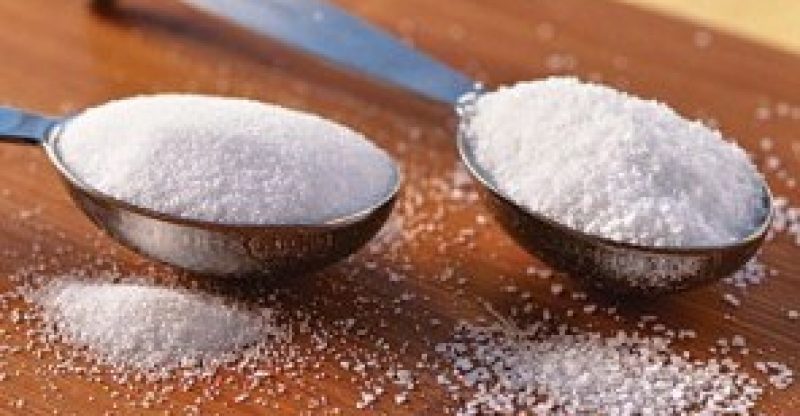Naturopathy – Sugar and Salts
Sugar, particularly white sugar, is a sweet poison. Sugar is one thing which we can safely exclude from our diet. At this, a bitter question arises, “how much sugar do we need?” Many types of food contain sugar and it is impossible to avoid it completely. Nature has provided sugar and salt along with vitamins, minerals etc. in many food items to meet our needs.
What we add is in excess and it does more harm than good. You may not have a weight problem now, but if you eat too much sugar, you would have it later in life, together with dental trouble, heart disease, strokes, diabetes, backache, arthritis, gallstones and high blood pressure. Hence, it should be the first item to be banned from ‘our diet. However, you may use honey but in a very small quantity. Similarly, salt should be used very sparingly, as it is very harmful in hypertension and many other diseases. Nature has provided enough salt in all vegetables and many fruits. A word of caution – shun the habit of adding salt at the dining table.
Eating smaller meals can help you to keep your blood sugar level stabilized. Try not to consume foods that contain a lot of sugar, sodium or saturated fats. For breakfast, you can eat carbohydrates. You can also incorporate fiber during breakfast. A good choice would be a bowl of oatmeal. Be sure to include protein for your muscles.
Parents are risking the health of their kids by inadvertently feeding them with foods containing high salt content, a new study has found. According to the study, carried out by the consensus action on Salt and Health in Britain, the parents are actually not aware of the hidden salt content or sodium content in popular foods and the dangers of eating them. The researchers have found that foods are regularly eaten by children, such as some pizzas and burgers, contain over one gm of salt or sodium content per serving – almost a third of the recommended daily limit for four to six-year-olds.
The study has also revealed that many sweet foods have high salt content or sodium content, but few parents are aware of this. “Keeping children’s salt consumption below the recommended maximum limits is vital. Research shows that children who eat higher salt diets have higher blood pressure than children who eat less salt.
It’s also well established that blood pressure tracks into adulthood, with the risk of developing heart disease as well as stroke. Too much salt content or sodium content is also linked with stomach cancer, osteoporosis and can aggravate the symptoms of asthma,” the British media quoted Chairman of the Consensus Action on Salt and Health Graham MacGregor as saying.

